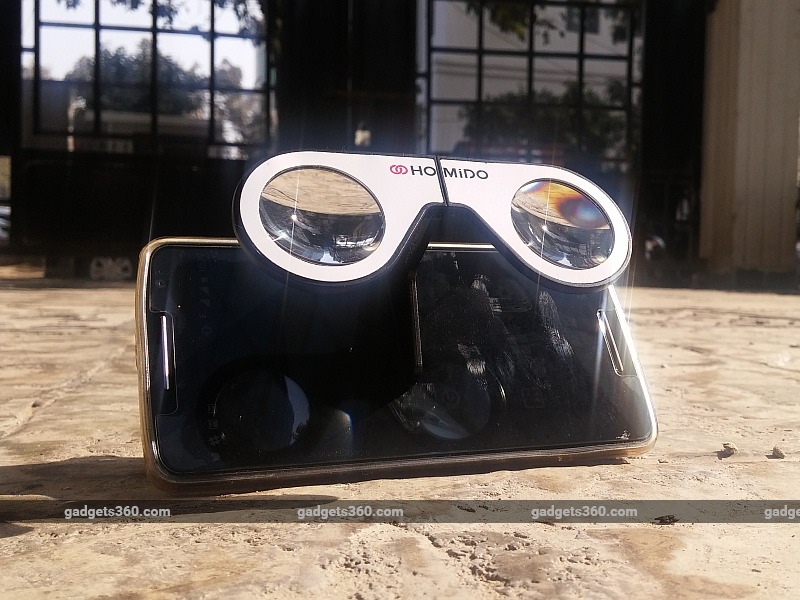
The Homido Mini is a small, easy to use, and extremely portable virtual reality ‘headset’ for mobile devices that works with apps that support Google Cardboard. It’s reasonably cheap, and you can use it to very easily showcase VR experiences without having to carry around a large boxy cardboard headset, which makes it a great buy if you’re interested in virtual reality.
Getting into virtual reality has never been easier thanks to smartphone-powered VR headsets. Although a full-fledged VR setup is expensive – for example, the Oculus Rift will cost you $599 to pre-order (roughly Rs. 39,500) – mobile setups are significantly cheaper.
(Also see: Oculus Rift Preview: Bringing Reality to the Virtual World)
The Samsung Gear VR has launched at Rs. 8,200 in India and is available elsewhere at $99(approximately Rs. 6,700). But aside from that, there are also a number of Google Cardboard headsets. You can get these online for prices ranging from roughly Rs. 200 for basic cardboard sets, to around Rs. 2,000 for more fancy designs with plastic bodies and headstraps.
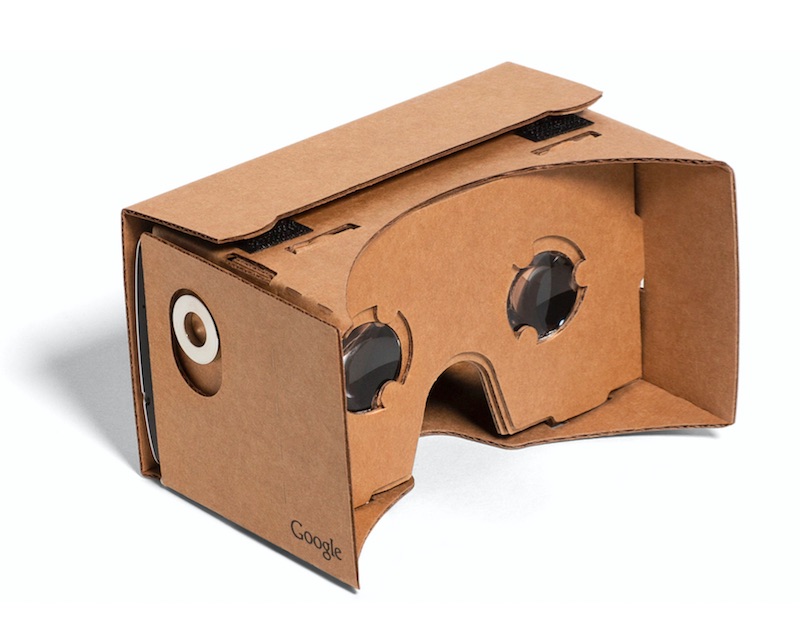 One problem with all these headsets is that they’re not really very portable – you can disassemble the headset but this takes time and effort, and an assembled Cardboard headset isn’t something you can really slip into your pocket.
One problem with all these headsets is that they’re not really very portable – you can disassemble the headset but this takes time and effort, and an assembled Cardboard headset isn’t something you can really slip into your pocket.
The Homido Mini is the simplest possible solution to this problem – its creators recognised that the essence of Cardboard is just the lenses positioned to let you look at images on your phone’s screen, and so they got rid of everything else.
Design
The result is a tiny gadget that will fit in the palm of your hand. The Homido Mini has a clip in its centre to attach to your phone, and two lenses that fold into a slim line along this axis. The lenses fold outwards to look like a pair of eyeglasses, and that’s all there is to the Homido Mini.
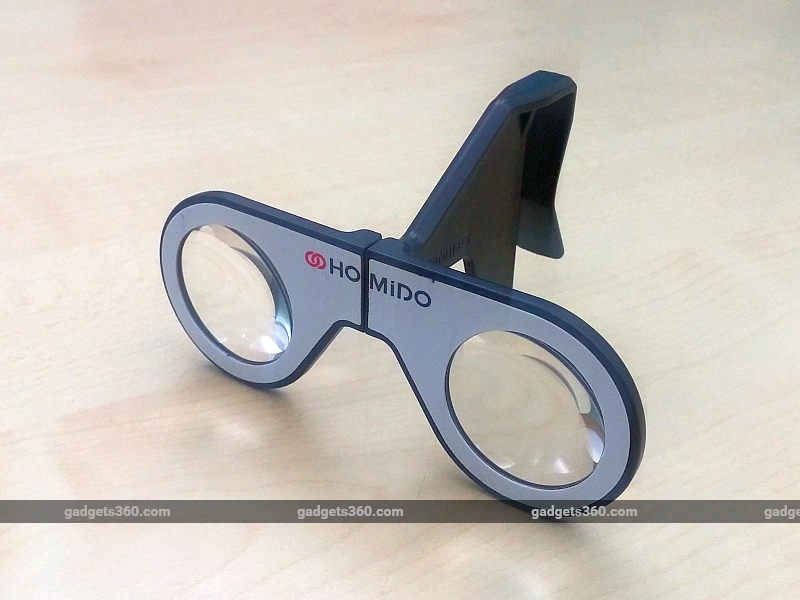 To use it, you simply need to hold your eyes up to the lenses, and you’ll see the world in 3D just like you would with a regular Cardboard headset. Since there’s no buttons on the Homido Mini, you’ll need to touch the screen with your finger, but given how minimal the headset is, this isn’t much of a problem. There are no straps to attach it, so you’ll need to use one hand to hold the phone up at all times, though this is the case with most basic Cardboard headsets too.
To use it, you simply need to hold your eyes up to the lenses, and you’ll see the world in 3D just like you would with a regular Cardboard headset. Since there’s no buttons on the Homido Mini, you’ll need to touch the screen with your finger, but given how minimal the headset is, this isn’t much of a problem. There are no straps to attach it, so you’ll need to use one hand to hold the phone up at all times, though this is the case with most basic Cardboard headsets too.
It’s got a thin plastic frame, and the entire thing collapses into a small unit that you can easily keep in your pocket when you’re traveling, though you’ll want to get a small pouch or something else to carry it around in, to protect the lenses from getting scratched or smudged.
When you want to use it, just unfold the lenses, and then line up the clip with the divider line in the middle of your screen, and attach the Homido Mini viewer. It’s a lot simpler than fitting a phone into the standard Google Cardboard headset, where you’re worried about lining up the screen with the holes, and where you can easily turn the flaps in the wrong direction damaging the cover in a moment of carelessness.
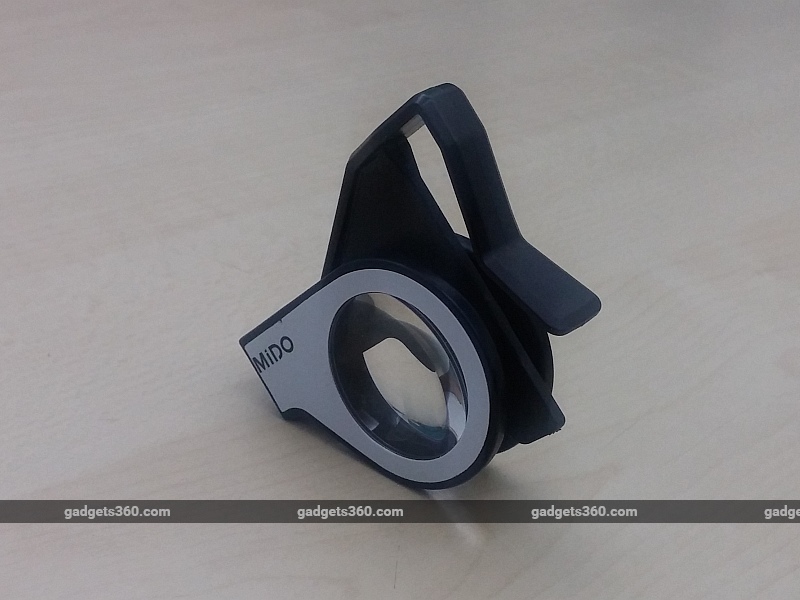 Also, since it’s made of plastic and not actual cardboard, there’s less risk of ruining it forever by putting the headset down on a slightly damp surface.
Also, since it’s made of plastic and not actual cardboard, there’s less risk of ruining it forever by putting the headset down on a slightly damp surface.
Performance
As a basic Cardboard headset, the Homido Mini performs admirably. Since there are no straps or flaps, it’s easy to set up and use, and it also means that it’s comfortable to use for people who wear glasses. If your power is high enough that you can’t ditch glasses when in VR, then this is definitely a lot more comfortable.
However, the design also means that it allows all ambient light in when you’re viewing something in VR. That’s not ideal, and can reduce the immersion for some experiences. However, although it’s mildly annoying, we found it was not as bad as we had feared.
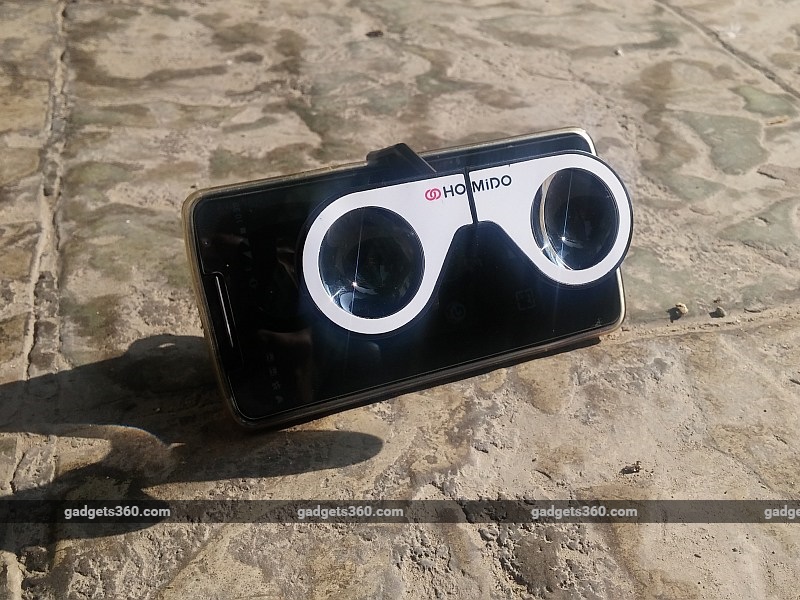 As a Cardboard headset, this kind of viewer has some general problems that are common to other headsets too. For one thing, your inputs are limited, and since your hand is tied up to hold the phone in place, you can’t even try and use a Bluetooth remote or controller. That means that the Homido Mini is best suited for looking at photos or videos, than playing a game.
As a Cardboard headset, this kind of viewer has some general problems that are common to other headsets too. For one thing, your inputs are limited, and since your hand is tied up to hold the phone in place, you can’t even try and use a Bluetooth remote or controller. That means that the Homido Mini is best suited for looking at photos or videos, than playing a game.
Secondly, unlike the higher end headsets for PCs, or even the Gear VR, you can’t adjust the IPD on Cardboard headsets. That shouldn’t be a problem for most, but some people will find any Cardboard headset blurry as a result. And because the headset has no accelerometer or gyroscope (again, unlike the Gear VR or better headsets) there can be some issues with the view drifting. If you’re using a slightly older phone, then you’re going to see some other issues as well including ghosting of images, or laggy motion tracking.
Verdict
The Homido Mini lives up to the ‘Mini’ in its name with a very portable and easy to use device that lets you carry a VR headset in your pocket. That’s not to say that it’s perfect – it lets light in, lacks any means of going hands-free, and has the usual Cardboard issues to boot.
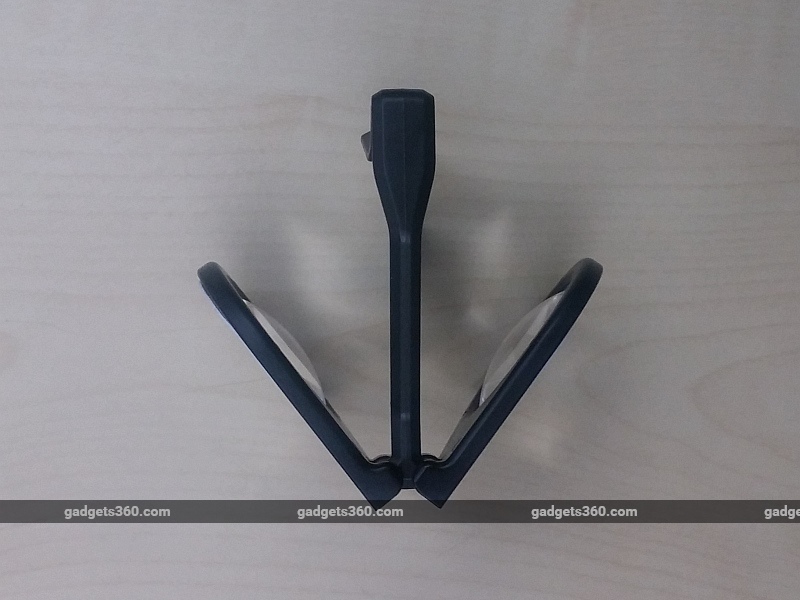 Despite these caveats, the experience of using the Homido Mini has been excellent. Watching 360-degree videos on YouTube or exploring photospheres and images taken with Cardboard Camera all works perfectly. And since the Homido Mini is small enough to slip into your pocket, it’s always on hand when you want to show someone a glimpse of VR. It might not be the best Cardboard viewer you can get for the price, but if you’re looking for something you can slip into your pocket and easily take with you when you’re traveling or want to show something to a friend, then it’s great.
Despite these caveats, the experience of using the Homido Mini has been excellent. Watching 360-degree videos on YouTube or exploring photospheres and images taken with Cardboard Camera all works perfectly. And since the Homido Mini is small enough to slip into your pocket, it’s always on hand when you want to show someone a glimpse of VR. It might not be the best Cardboard viewer you can get for the price, but if you’re looking for something you can slip into your pocket and easily take with you when you’re traveling or want to show something to a friend, then it’s great.
Price: $14.99 (approximately Rs. 1,000) on Amazon
Please note, Amazon does not ship the Homido Mini to India, so you’ll need to get this when you’re traveling or via one of the services that can ship to India.
Missed the news? Here’s a list of all phones launched at MWC 2016 on one handy page – or catch our full Mobile World Congress coverage.
[“Source-Gadgets”]



